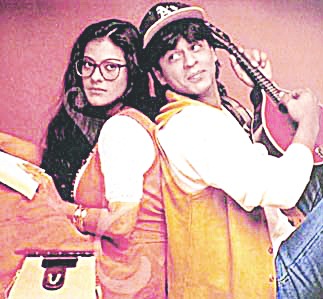Friends and modern families

♦ NAME PLACE ANIMAL THING (Fingerprint, Rs 250) by Mayank Shekhar is a collection of essays on a number of aspects of popular Indian culture - ranging from cinema and drinking to politics and music - that are often glossed over. Before making his mark as a noted film critic, the author used to write for the popular English daily, Mid-Day. He is known for his wry, scornful sense of humour, and in this book, he deconstructs a number of popular myths about ways of life in India, some of them disconcerting. For instance, he makes an interesting observation about Emraan Hashmi's transformation into a Bollywood sex symbol - Shekhar thinks it is less a result of the actor's own charm and more a product of his ability to make the average male viewer feel more masculine. Similarly, he is of the opinion that a film like Dilwale Dulhaniya Le Jayenge worked precisely because of its ability to peddle, simultaneously, family values to the diasporic Indian audience and an escapist fantasy to the home audience.
Cinema, of course, is Shekhar's forte. But he writes with equal ease on other aspects of the Indian life. According to him, the notorious raids of upmarket Mumbai bars are not so much the result of the police force's evangelical zeal as of its desire to resolve class tensions with the more affluent residents of the city.

♦ RUNAWAY WRITERS (Speaking Tiger, Rs 299) by Indu Balachandran talks about following one's dreams and discovering what truly matters in life. When Ambujakshi, or Amby, quits her corporate job to explore life as a writer, her friends, Mini and Bobby, who also have similar dreams, join her. They travel to the magical Greek island of Santorini for a writer's workshop; in doing so, they discover love, life and friendship. Balachandran makes ample use of social-media witticisms and succeeds in making the book a light-hearted read.
♦ THE MODERN GURUKUL: MY EXPERIMENTS WITH PARENTING (Random House, Rs 250) by Sonali Bendre Behl is a sincere effort by a mother who wants to share her own experiences of raising a child. This book is refreshingly different from other works of its ilk, and does not provide ready answers. Rather, it posits some fundamental questions surrounding the process of child-rearing in a world where traditional values are becoming redundant and conventional family structures are breaking up. Bendre Behl uses principles of Vedic education as her guide, and reworks them to suit her own context. She argues that compassion is the key to bringing up a child, as is learning from mistakes and distinguishing right from wrong.











